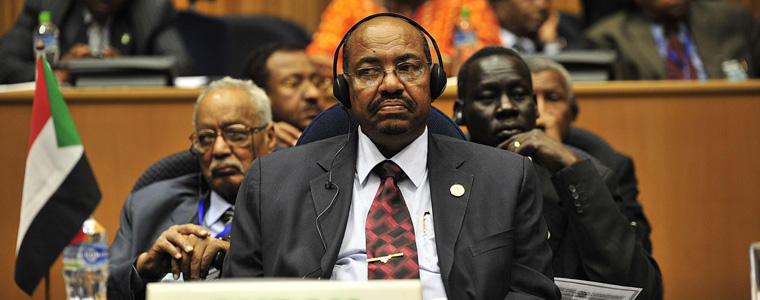USIP Paper Calls for Sudan National Dialogue
Two of USIP’s leading thinkers on Africa issues have called for a national dialogue and reform process in Sudan—to be led by Sudanese.

Princeton N. Lyman and Jon Temin, in a recent U.S. Institute of Peace PeaceBrief, “Pathway to National Dialogue in Sudan,” suggest the general parameters of an initiative from within Sudan that would draw disparate political groups to the cause of national renewal, democracy, reconciliation and stabilization.
Sudan lost approximately one fourth of its population two years ago when it split with South Sudan, a new nation with which it is economically entwined but also locked in dangerous disputes over territory, security and oil. As the authors write, “Sudan remains in turmoil. The secession of South Sudan in 2011 did nothing to resolve Sudan’s longstanding internal conflicts.” Those include not only the long-running tragedy in Darfur and violence in the states of Southern Kordofan and Blue Nile but also serious tensions between political opponents and the entrenched regime of Omar al-Bashir, who took power in a 1989 coup.
Lyman, the former U.S. special envoy for Sudan and South Sudan, has also served as U.S. ambassador to Nigeria and to South Africa and as the assistant secretary of state for international organization affairs. He is now a special advisor to USIP’s President, Jim Marshall. Temin is the director of its Horn of Africa program and a specialist on the two Sudans. Their joint call for an inclusive and realistic national dialogue reflects a refreshing level of pragmatism in the service of encouraging long-overdue changes in Sudan.
Lyman and Temin emphasize that the international community can support such a process but that the effort must be led by Sudanese and, in fact, involve “elements of the current regime, Islamists and all armed and unarmed opposition groups.” The primary diplomatic role from the outside, they say, should come from the African Union through its High-Level Implementation Panel chaired by former South African President Thabo Mbeki.
More broadly, the two note “a growing international consensus that efforts to resolve Sudan’s multiple internal conflicts…individually, in piecemeal fashion, have failed.” They recommend instead “a more comprehensive approach to Sudan’s internal conflicts that addresses critical issues of governance, managing diversity and reconciliation.”
The writers’ realism on Sudan’s predicament furthermore extends to the sensitive situation involving International Criminal Court indictments of Bashir for alleged genocide and other crimes in Darfur. Bashir has good reason to fear arrest and eventual trial in The Hague whenever he leaves office. Any process of dialogue leading to reform in Khartoum must reckon with the reality that Bashir and some of his aides will be preoccupied with their own fates. “How to convince the regime to engage in a meaningful dialogue and reform process, while simultaneously addressing their self-preservation concerns, remains a central, unsolved riddle,” they write.
Lyman and Temin argue that the dialogue’s participants need to include not just peaceful political opposition parties but armed foes of the regime—particularly the Sudan Revolutionary Front, a union of the Sudan People’s Liberation Movement-North and three Darfur-based rebel groups. Civil society groups also need to have a role, they add. If such a process can gain traction, it is possible that Sudan—with international understanding—would need to defer elections scheduled for 2015. And ultimately, they argue, the domestic negotiations might need to temper its expectations from full consensus to “sufficient consensus” given the welter of issues and competing groups that would take part in the process. If a credible dialogue process moves forward, the U.N. Security Council could consider temporarily deferring the Bashir indictments to support that process, though in the end “justice considerations cannot be sacrificed,” they say.
The Lyman-Temin paper merits a close look for its frank views both on Sudan’s political stalemate and on the sort of approach that would give it a chance to move ahead—in its own way. Merely heaping on more international demands for immediate change in Sudan is not likely to promote real progress there. A country that has spawned a lot of violence and instability and earned years of opprobrium from abroad needs to find a new path. The odds for a breakthrough may be modest, but as Lyman and Temin conclude, “Without such a process, Sudan has little chance of breaking its destructive cycle of instability.”



